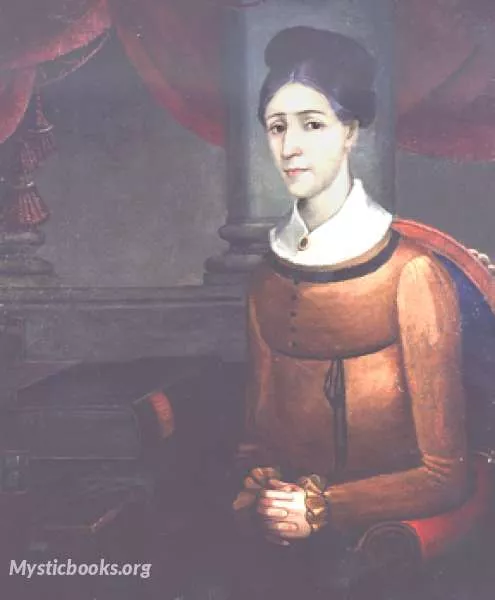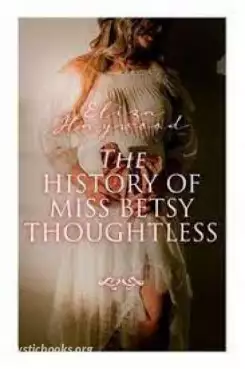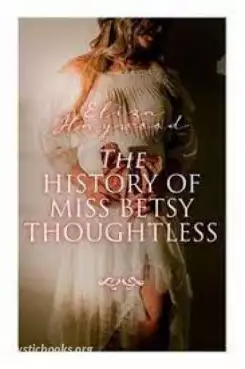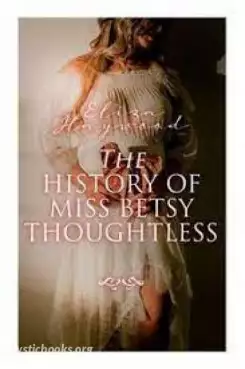
Timeline
Title
Country/Nationality
Eliza Haywood
Eliza Haywood, born Elizabeth Fowler, was an English writer, actress and publisher. An increase in interest and recognition of Haywood's literary works began in the 1980s. Described as "prolific even by the standards of a prolific age", Haywood wrote and published over 70 works in her lifetime, including fiction, drama, translations, poetry, conduct literature and periodicals. Haywood today is studied primarily as one of the 18th-century founders of the novel in English.
Scholars of Eliza Haywood universally agree upon only one thing: the exact date of her death. Haywood gave conflicting accounts of her own life; her origins remain unclear, and there are presently contending versions of her biography. For example, it was once mistakenly believed that she married the Rev. Valentine Haywood. According to report, Haywood took pains to keep her personal life private, asking the one (unnamed) person with knowledge of her private life to remain silent for fear that such facts may be misrepresented in print. Apparently, that person felt loyal enough to Haywood to honor her request.
The early life of Eliza Haywood is somewhat of a mystery to scholars. While Haywood was born "Eliza Fowler", the exact date of Haywood's birth is unknown due to the lack of surviving records. Although, scholars believe that she was most likely born near Shropshire or London, England in 1693. This birth date is extrapolated from a combination of her death date and her stated age at the time of her death (as Haywood died on 25 February 1756 and obituaries notices list her age as sixty years old).
Haywood's familial connections, education status, and social position are unknown. Some scholars have speculated that she is related to Sir Richard Fowler of Harnage Grange, who had a younger sister named Elizabeth. Others have stated that Haywood was most likely from London, England as several Elizabeths were born to Fowler families in 1693 in London, however, no evidence exists to positively solidify either of these possible connections. Her first entry in public records appears in Dublin, Ireland, in 1715. In this entry, she is listed as "Mrs. Haywood," performing in Thomas Shadwell's Shakespeare adaptation, Timon of Athens; or, The Man-Hater at the Smock Alley Theatre. Haywood's marital status is self-identified as "widow", noting that her marriage was "unfortunate" in 1719. While Haywood was listed as "Mrs." Haywood in public records and she references her unfortunate marriage once in a letter, no record of her marriage has been found and the identity of her husband remains unknown.
Scholars have speculated that Haywood had an affair and even a child with Richard Savage in the 1720s, in addition to a 20-year open relationship with William Hatchett; he was suspected of being the father of her second child. However, later critics have called these speculations into question as too heavily influenced by Alexander Pope's famous illustration of her in The Dunciad and too little based upon hard facts. (Pope depicted Haywood as a grotesque figure with two "babes of love" at her side, one by a poet and the other by a bookseller.) Other accounts from the period, however, suggest that her "friends" rejected Pope's scandalous depiction of her; they maintained that she had been deserted by her husband and left to raise their children alone. In fact, and despite the popular belief that she was once a woman of ill repute, Haywood seems to have had no particular scandals attached her name whatsoever.
Haywood's friendship with Richard Savage is thought to have begun around 1719, just after the anonymous publication of Part I of her first novel, Love in Excess. Savage wrote the gushing 'puff' for Part I of the novel. The two appear to have been close in these early years, sharing many associates in literary and theatrical circles, even sharing the same publisher, William Chetwood. By September 1725, however, Savage and Haywood had fallen out, and his anonymous attack on her as a 'cast-off Dame' desperate for acclaim in The Authors of the Town struck a chord. Savage is considered the likely impetus for Pope's attack on Haywood, as well.
Haywood's association with Aaron Hill and the literary coterie known as The Hillarians seems to have followed a similar pattern as Haywood rose to fame. The Hillarians were a collection of writers and artists "committed to a progressive programme of ameliorating 'politeness'," and included Savage, Hill, Martha Fowke, and for a time, Haywood. The group shared poems to and about each other, and formed a social circle of like minds. Haywood seems to have greatly admired Hill—who, though not a patron, seems to have promoted young, up-and-coming artists—and dedicated poems to him. She may have even seen him as a mentor during the earliest years of her career.
William Hatchett was a long-time colleague and collaborator. The two probably met around 1728 or 1729, and recent critics have touted the pair as domestic partners or lovers, though this suggestion has now been challenged. He was a player, playwright, pamphleteer, and translator (and perhaps "sponge") who shared a stage career with Haywood, and they collaborated on an adaptation of The Tragedy of Tragedies by Henry Fielding (with whom she also collaborated) and an opera, The Opera of Operas; or, Tom Thumb the Great (1733). They also may have collaborated on a translation of Claude Prosper Jolyot de Crébillon|Crébillon fils' Le Sopha in 1742. Hatchett has even been seen as the father of Haywood's second child (based on Pope's reference to "a Bookseller" as a father of one of her children, though Hatchett was not a bookseller.) No clear evidence supporting this or a domestic partnership is extant.
Haywood's writing career began in 1719 with the first instalment of Love in Excess, a novel, and ended in the year she died with the conduct books The Wife and The Husband and contributions to the biweekly periodical The Young Lady. She wrote in almost every genre, often anonymously. Haywood is now considered "the foremost female 'author by profession' and businesswoman of the first half of the eighteenth century", tireless and prolific in her endeavours as an author, poet, playwright, periodical writer and editor, and publisher. During the early 1720s, "Mrs Haywood" dominated the novel market in London, so much so that contemporary Henry Fielding created a comic character, "Mrs. Novel", in The Author's Farce, modelled after her.
Haywood fell ill in October 1755 and died on 25 February 1756, actively publishing up to her death. She was buried in Saint Margaret's Church near Westminster Abbey in an unmarked grave in the churchyard. For unknown reasons, her burial was delayed by about a week and her death duties remain unpaid.
Books by Eliza Haywood

The History of Miss Betsy Thoughtless, Vol. 1
The flirtations of a rich young maiden, Miss Betsy Thoughtless with several suitors, as she alienates the right man by refusing to take the issue of marriage seriously. Because of this her guardian commits her to marriage to the wrong man, a situatio...

The History of Miss Betsy Thoughtless, Vol. 2
This has been said to be the first female development novel in English. Betsy leaves her emotionally and financially abusive husband Munden and experiences independence before she decides to marry again. The novel has marital advice told via quips fr...

The History of Miss Betsy Thoughtless, Vol. 3
Betsy Thoughtless is about marriage, rather than dealing with courtship and thus differs from the type of domestic writing that would develop in the 19th century such as Charlotte Brontë’s Jane Eyre. Rather than attracting a partner well, Betsy Thoug...

The History of Miss Betsy Thoughtless, Vol. 4
Betsy Thoughtless is about an intelligent and strong-willed woman who marries under pressure from the society in which she lives. Betsy learns that sometimes giving way to the role of women within a marriage can at times be fulfilling. This is the fo...

Fortunate Foundlings
In the heart of the 18th century, Eliza Haywood crafted 'Fortunate Foundlings', a whirlwind of a novel that follows the intertwined destinies of Horatio and Louisa, twins abandoned in their infancy and raised by a wealthy benefactor. As they venture...